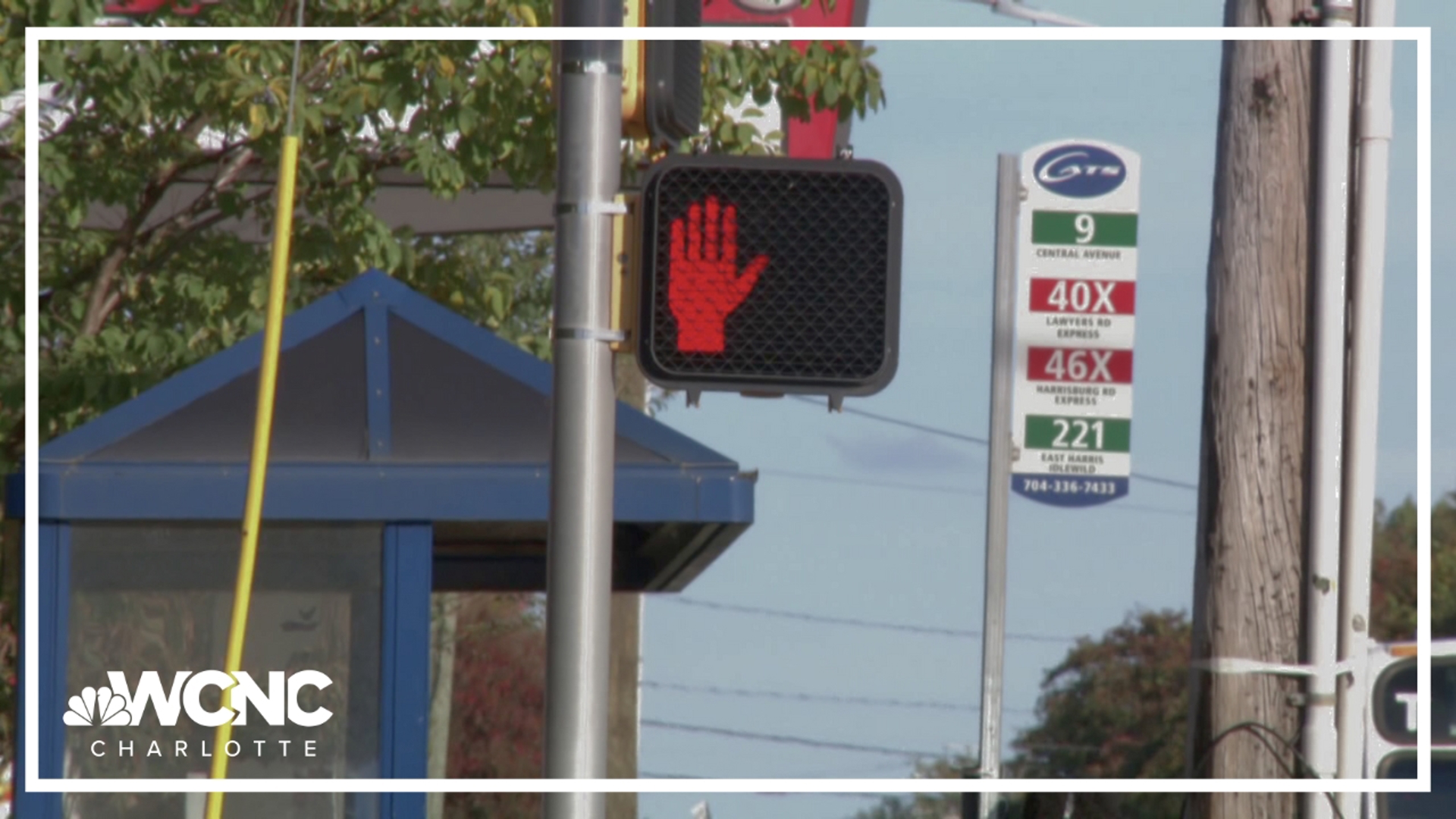CHARLOTTE, N.C. — Charlotte’s Vision Zero program is in the spotlight following a new internal audit.
Charlotte leaders adopted Vision Zero, a strategy to eliminate all traffic deaths and severe injuries by 2030, in 2019. The program was started in Sweden in 1997 and has been implemented in cities across the globe.
“Vision Zero was implemented to eliminate traffic fatalities, to save lives to ensure that we are designing our city [as] a safe place for all residents,’ Charlotte City Council-At large member Dimple Ajmera said.
However, according to a new internal audit, the program is failing to have a significant impact on the communities despite the millions of dollars behind it since it launched, leaving some asking where's the money.
“It's truly concerning,” Ajmera said. “It is deeply troubling.”
The audit notes, “Despite an increase in spending there’s been no significant decrease in crashes resulting in deaths and or suspected serious injuries.”
The report notes there were 125 deadly crashes in Charlotte in 2022, up from 81 in 2020. Speeding, distracted driving, and driving while impaired are the top three contributors listed.
According to the report, not enough is being done to turn these numbers around. The audit finds the city is failing to protect people on its roads.
“The report is pretty clear that we are failing the residents of Charlotte,” Ajmera said. “[The] city council and mayor have been pouring millions of dollars to save lives and if those dollars are not being used the way it was intended to then suddenly, we are failing.”
The report notes that the Charlotte Department of Transportation has not fully implemented key components of the Vision Zero action plan, crash data is not consistently or correctly reported by CMPD and the program lacks leadership.
“Not having a structure in place, it's concerning because this plan was implemented back in 2019,” Ajmera said.
The report has several recommendations, including:
- Identifying someone who would be responsible for action items to be completed
- CMPD should focus patrols and resources in high-injury areas
- City workers should model good behavior when it comes to following traffic ordinances, noting several instances where city staff and CMPD parking on sidewalks and bike lanes or causing obstructions with signs
- Crashes should be investigated for infrastructure improvements.
Sustain Charlotte agrees with the recommendations and adds road safety needs to be a priority.
“A lot of that includes just actually tracking the metrics and knowing that what we are doing is correct or moving us in the right direction,” Hope Wright, the Advocacy Manager for Sustain Charlotte, said.
Wright said they are pushing some of their organization's recommendations, starting with slowing cars down.
“Red lights slow people down, stop signs, yield signs, speed bumps, speed cushions ... We have to design our streets to force people to slow down and force drivers to pay attention,” Wright said.
The group wants to see what they are referring to as "road diets" in more areas of Charlotte to create a safer environment for everyone on the road.
“This is the idea of where you have a four-lane road and reduce it to a two-lane road, and then you add a protected bike lane, you add a sidewalk and a crosswalk where it is more of a complete street,” Wright explained.
These are necessary changes that Wright believes will save lives.
“Redesigning streets is hard work, behavior change is hard work, but it is something that we need to keep at and be diligent about and it is something that the audit is pointing at,” Wright said.
The report also notes that 62% of serious injuries or deadly crashes happen on state roads.
Sustain Charlotte said it is important for NCDOT to also commit to the vision zero plan so roads are designed with safety in mind instead of focused on moving cars around as quickly as possible.
BikeWalkNC's Executive Director, Terry Lansdell, said the audit is a wake-up call for CDOT.
"Its problems lie deep in their inability to connect silos and lead the city's 4th largest department," Lansdell said in a statement, in part. "The planning issues continue to drive this failure moving forward. The city's ability to manifest its goals on state roads is limited and leadership of CDOT must stand up against the state engineers to address this."
It also comes down to accountability.
“We have to make sure that these recommendations are implemented and that we are seeing the results of millions of dollars of our investments of our taxpayers’ dollars,” Ajmera said. “We got to make sure that we are saving lives.”
According to the report, CDOT and CMPD are taking the next steps to make improvements: "CDOT and CMPD have accepted all recommendations and are working to implement corrective actions in a timely manner. CDOT has prepared a Vision Zero Action Plan status update. Internal Audit will conduct a follow-up audit after all recommendations have been implemented."
City officials sent the following statement to WCNC Charlotte: “The audit report captures CDOT’s responses to the recommendations, and we are working towards meeting those recommendations by the deadlines listed. Of the 73 action strategies identified in the vision zero action plan, 80% are complete, underway, or ongoing.”
WCNC Charlotte is always asking "where's the money?" on stories that impact you. If you need help, reach out to WCNC Charlotte by emailing money@wcnc.com.
Contact Jesse Pierre at jpierrepet@wcnc.com or follow her on Facebook, X and Instagram.
WCNC Charlotte's Where's The Money series is all about leveling the playing field in the Carolinas by breaking down barriers on news that impacts you. WCNC Charlotte doesn't want our viewers to be taken advantage of, so we’re here to help. Watch previous stories where we ask the question “Where’s the Money” in the YouTube playlist below and subscribe to get updated when new videos are uploaded.

